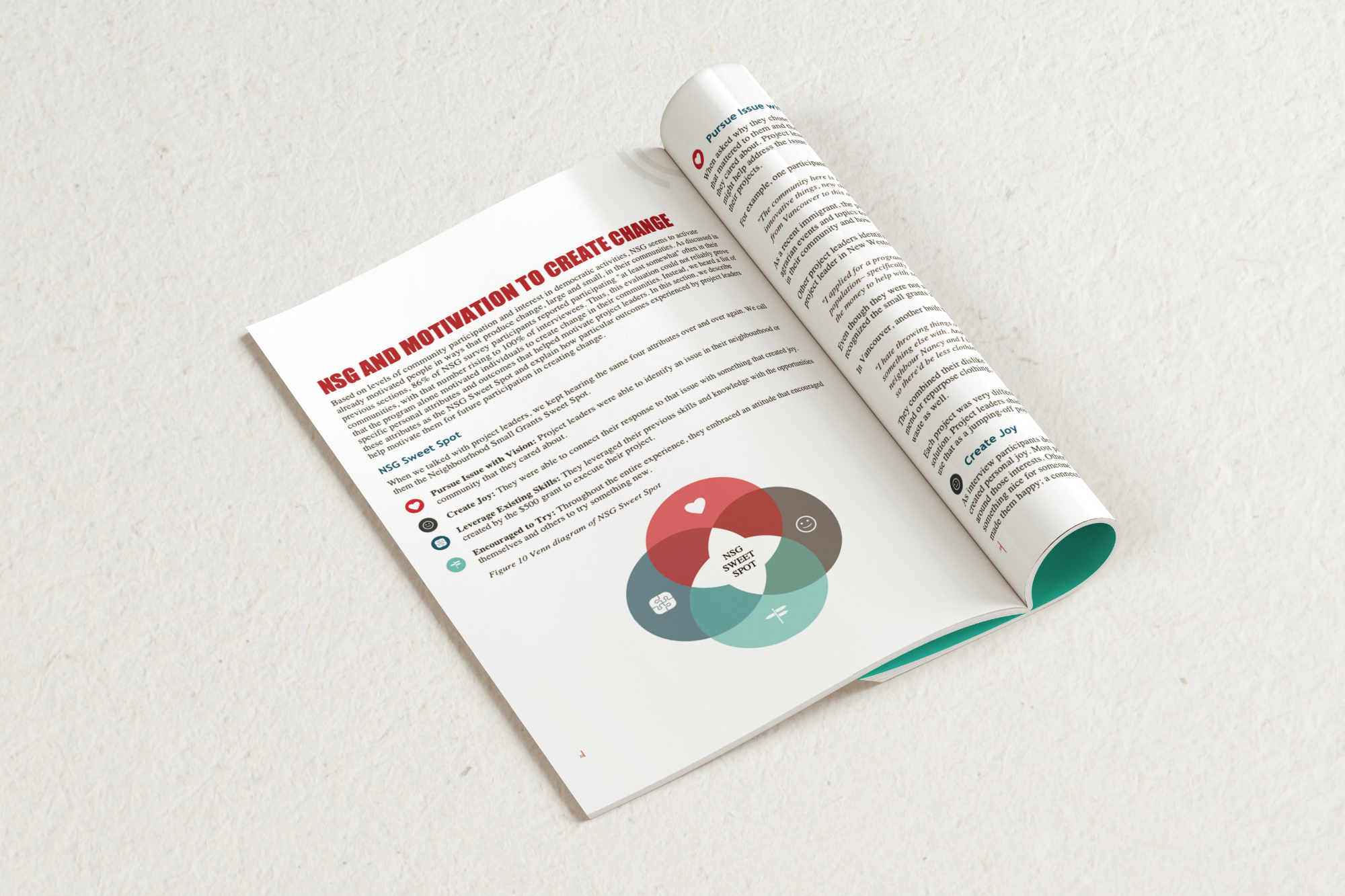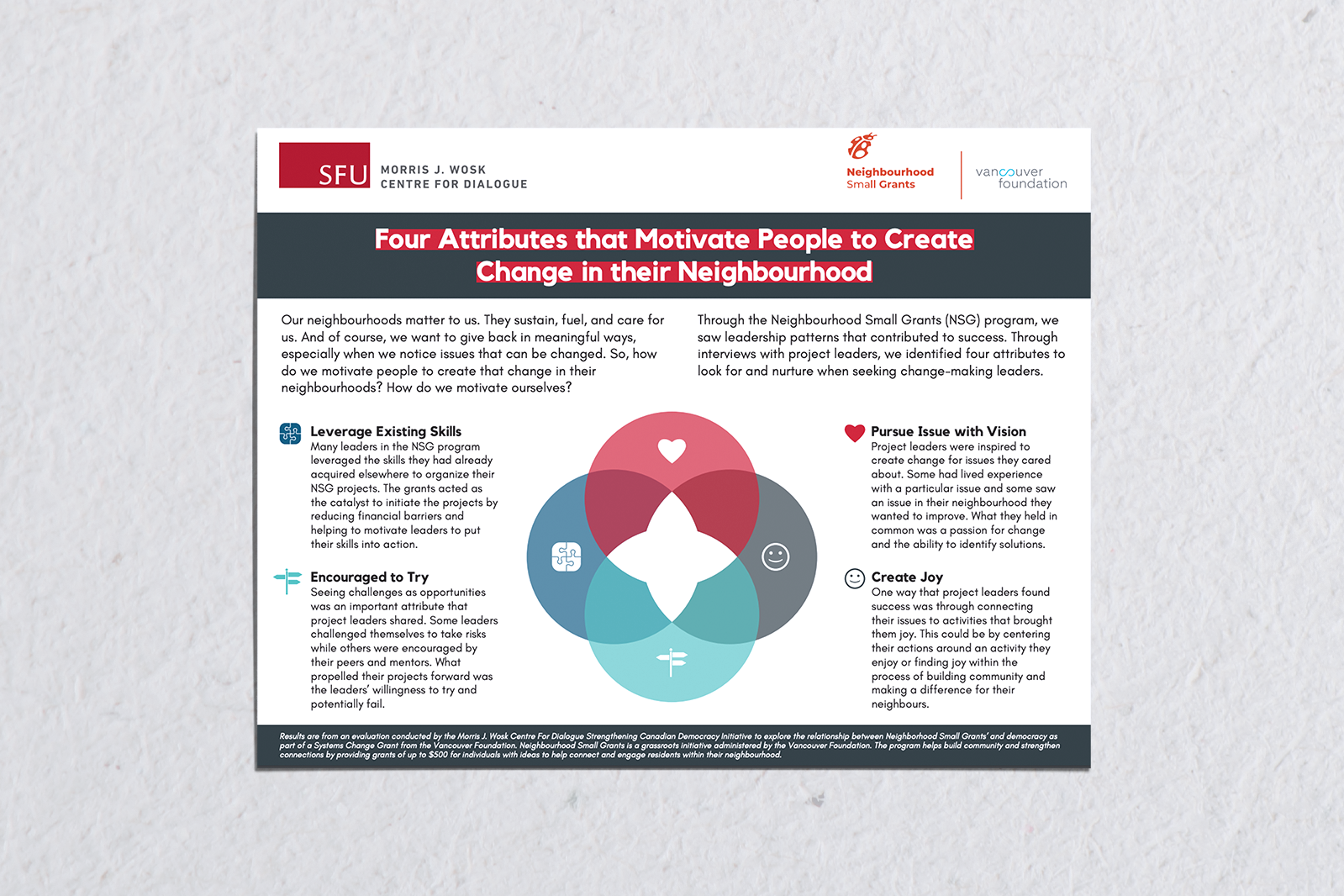- About
- People
- What We Do
- Public Programming
- Initiatives
- When the Map Is Useless
- Cities + Climate
- Mitigating Wildfire
- Moving in a Livable Region
- The Dialogue on Technology Project (DoT)
- Urban Resilient Futures Burnaby
- Action on Climate Team
- Clean Energy Canada
- Hey Neighbour Collective
- New Economy Canada
- Renewable Cities
- Renovate the Public Hearing
- SFU Demshot Challenge
- Signature Events
- Jack P. Blaney Award for Dialogue
- Award Recipients
- 2024/25: Bringing Justice Home with Judge Abby Abinanti
- 2021/22: Reimagining Social Justice and Racial Equity with adrienne maree brown
- 2019/20: Climate Change and Human Rights with Sheila Watt-Cloutier
- 2017/18: Peace, Pluralism and Gender Equality with Alice Wairimu Nderitu
- 2015/16: Climate Solutions with Tim Flannery
- 2013/14: Reconciliation with Chief Robert Joseph
- 2011/12: Twelve Days of Compassion with Karen Armstrong
- 2009/10: Widening the Circle with Liz Lerman
- 2005: Corporate Social Responsibility and the Right to Health with Mary Robinson
- 2002: Environmental Sustainability with Maurice Strong
- Nomination Details
- History of the Award
- Award Recipients
- Bruce & Lis Welch Community Dialogue
- 2026: Economics for the People: Inside Inequality with Mohsen Javdani
- 2024: AI: Beyond the Hype—Shaping the Future Together with Stephanie Dick and Daniel Barcay
- 2022: Facing the Flames: New and Old Ways of Co-Existing with Fire with Joe Gilchrist and Paul Hessburg
- 2021: All My Relations: Trauma-Informed Engagement with Karine Duhamel
- 2019: Power of Empathy with Kimberly Jackson Davidson
- 2019: Rethinking BC Referendums with John Gastil
- 2017: Strengthening Democratic Engagement with Valerie Lemmie
- 2015-16: THRIVE! Surrey in 2030
- 2014: Citizen Engagement and Political Civility with Dr. Carolyn J. Lukensmeyer
- 2013: Building a Culture of Participation with Dave Meslin
- 2012: Riots and Restorative Justice with Dr. Theo Gavrielides
- 2011: Growing Out of Hunger with Will Allen
- 2010: The Age of Unequals with Richard Wilkinson
- Jack P. Blaney Award for Dialogue
- Dialogue Training
- Consulting Services
- Services
- Our Projects
- Burnaby Community Assembly
- Centering Equity and Inclusion in an Engagement Framework
- Framework for Diabetes in Canada
- COVID-19 and Public Health: The Faith and Spiritual Leaders Dialogue Series
- Burnaby Business Recovery Task Force
- CleanBC Job Readiness Workshops
- Your Voice. Your Home.
- Perspectives on Reconciliation
- Establishing a Chinese-Canadian Museum
- Citizen Dialogues on Canada’s Energy Future
- Clients and Partners
- Get in Touch
- Knowledge & Practice
- Shared Learning
- News
- Give
Neighbourhood Small Grants
About Neighborhood Small Grants
Neighbourhood Small Grants (NSG) offer $500 to community members to hold any activity or event that they believe will help build community in their local area. Since 1999, the program has grown each year and now involves communities across British Columbia. Created, supported and promoted by the Vancouver Foundation, the program has produced countless projects, friendships, and activities that promote neighbourhood belonging and joy amongst its participants.
About Our Evaluation
The Strengthening Canadian Democracy Initiative at the SFU Morris J. Wosk Centre for Dialogue wanted to find out if participation in the NSG program affected project leaders’ social capital (human networks), participation in democratic engagement, and motivation to create change.
Findings
We found that 86% of NSG survey participants participate at least somewhat often in their neighbourhood, and 95% know at least a few of their neighbours well enough to ask for help if they need it. This did not change as a result of the 2020 program.
The more social capital and community participation a project leader reported, the more likely they were to have positive views on democracy. NSG leaders participating in their neighbourhood are also more likely to believe voting gives them a say in how the government runs things. They described serendipitous conversations and supporting one another as significant in this regard. These findings suggest that acting locally, feeling belonging and supporting one another all correspond to stronger levels of democratic engagement and commitment.
Some participants did not see a connection between their project work and democracy. This disconnect appeared to be rooted primarily in participants' perception of democracy as synonymous with government or institutions and disconnected from grassroots community participation. These participants tended to also have a negative perception of politics.
Participants who linked their project work and democracy identified common values and the empowerment of individuals as the connection between the two.
Participants cited democratic values of inclusion, equity, personal choice, and individual freedom as part of their projects. They also made connections to citizen-led change as key to democracy.
Interviews with project leaders identified the Neighborhood Small Grant Sweet Spot: four attributes and two outcomes that help motivate people to create change in their communities.



